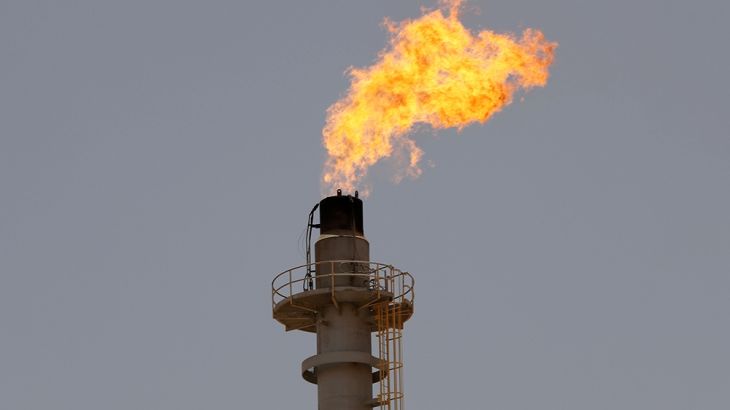
Why are some OPEC nations struggling to make any money right now?
Some resource-rich OPEC nations are turning to the International Monetary Fund for emergency loans.
Not all OPEC nations are rich and can weather a storm like the coronavirus pandemic with oil prices also sliding into negative territory, however briefly.
OPEC cartel leader Saudi Arabia is cutting subsidies and raising taxes but it also has massive foreign currency reserves that can see it through the crisis.
Keep reading
list of 4 itemsWhy are nations racing to buy weapons?
Parallel economy: How Russia is defying the West’s boycott
US House approves aid package worth billions for Ukraine, Israel
But that is not the case for the likes of Oman and Bahrain, which have slashed budgets, though they could get help from Saudi Arabia and the United Arab Emirates.
Our focus is those resource-rich nations that have had to turn to the International Monetary Fund and those that have not, as oil prices hover just north of $30 a barrel.
Algeria – The North African nation has seen its debt soar to 45 percent of GDP from just 26 percent in 2017. It had based this year’s austerity budget on oil prices of $50 a barrel.
Angola – In 2018, Africa’s second-biggest oil producer received a $3.7bn loan from the IMF and could be banging on its doors again. It relies on the sale of crude for 65 percent of its tax revenue.
Ecuador – Creditors have given the country a debt payment holiday. But it could still default on its $17bn debt. It also received an IMF loan of more than $600m.
And then there is Africa’s biggest oil producer, Nigeria, which last month received approval for a $3.4bn emergency IMF loan. The country is dependent on oil for 90 percent of its export earnings. With crude prices cratering, it has little room to service debt.
Kola Karim, chief executive of the Shoreline Group, which has holdings in a number of Nigerian oil ventures, shares his thoughts with Al Jazeera.
Lithium vs Oil
This is the stuff of science fiction.
Wuhan University has developed a plasma thruster, a type of propulsion engine, that could potentially power the planes of tomorrow, and bring emissions-free flying a step closer.
The pandemic has reduced global consumption of oil by about a third – with grounded jet airlines guzzling at least 5 million barrels of oil daily.
The coronavirus may just be the push green energy needs. It should come as no surprise that decline in fossil fuel usage has led to a fall of 8 percent in global carbon dioxide emissions, according to the International Energy Agency.
Andy Leyland, head of strategic advisory at Benchmark Minerals, discusses whether lithium, the stuff that powers much of our electric cars, can emerge as a winner from this crisis.
Saudi Arabia’s ‘sports washing’
Newcastle United could be in the hands of new owners very soon.
But the buyer comes with a lot of baggage. Saudi Arabia’s Public Investment Fund will own 80 percent of the English Premier League club.
Saudi Arabia’s human rights record, the killing of journalist Jamal Khassoggi and the country’s alleged theft of Middle Eastern Premier League rights could derail the $375m deal.
Amnesty has accused Crown Prince Mohammed Bin Salman of using the glamour and prestige of the Premier League to cover up actions that are deeply immoral.
Simon Chadwick, director at the Centre for the Eurasian Sport Industry, comments on Saudi Arabia’s “sports washing”.